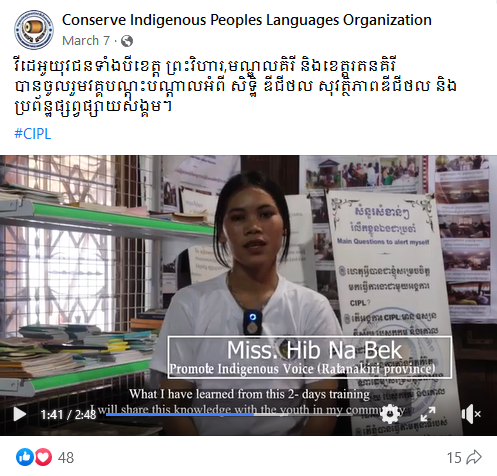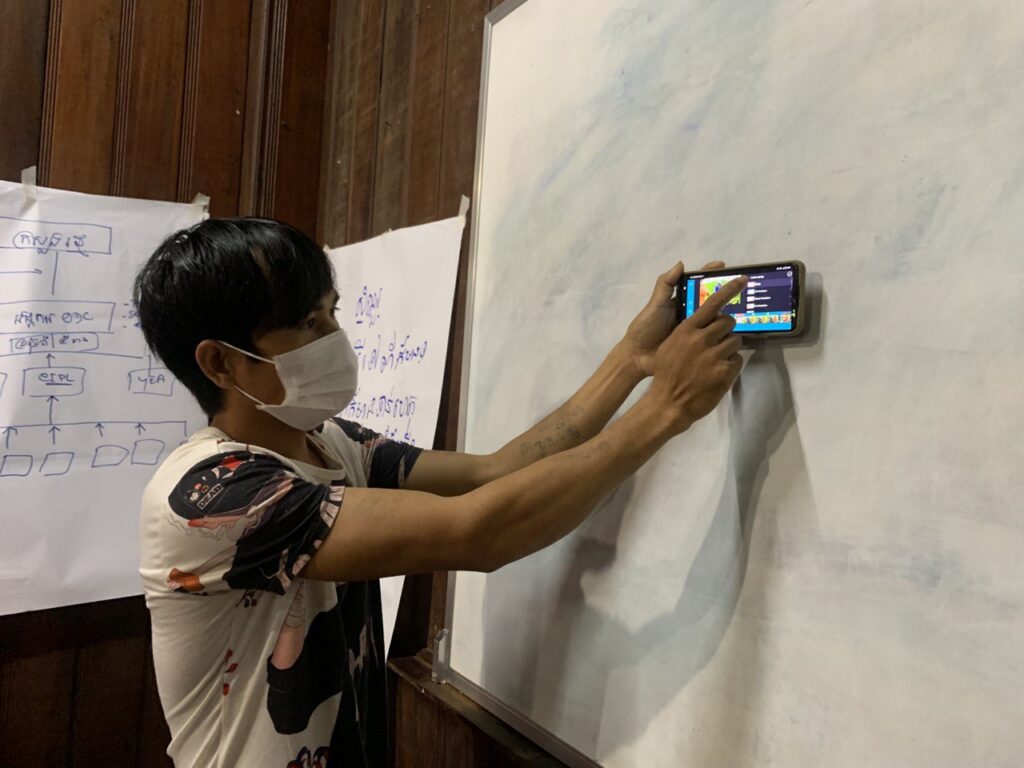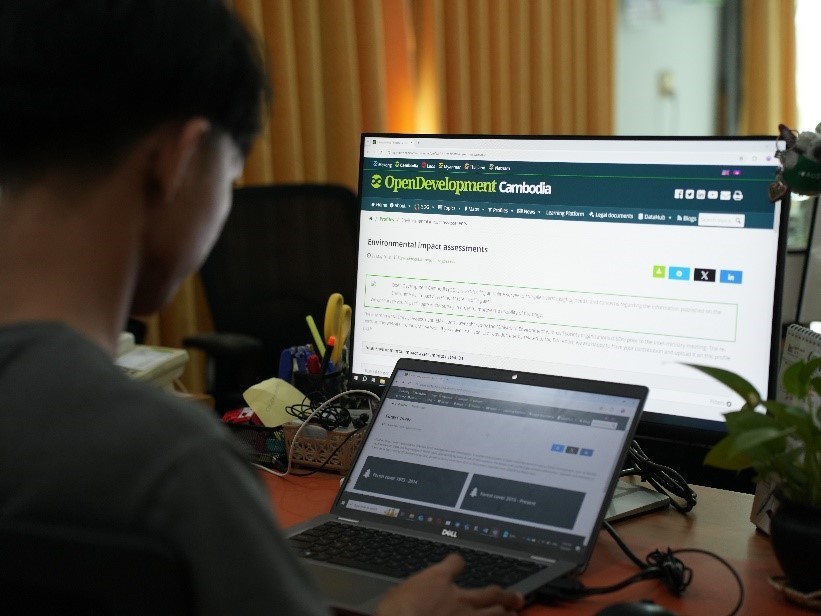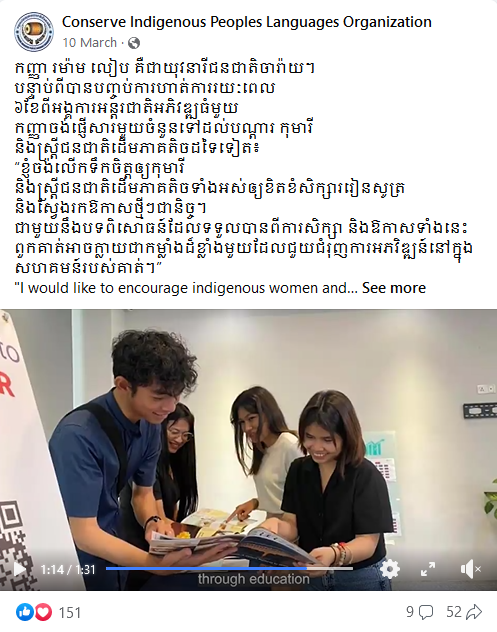The training covered the topics of human rights, digital rights, digital media, and digital trends in Cambodia. Pre and post-test results illustrated that 73% of the trainees improved their knowledge regarding digital security and rights.

Similar Stories
Indigenous youths’ improvement on mobile report
Being trained to use a smartphone to report reflects the view of indigenous youth. “This training is very significant for me since I could use it to empower my community and share with outsiders who we are and what we are living with.” Mr. Lao Bundinh is a Jarai indigenous youth. He was born in a rural area of Phork Thom village, Phork Nhai commune, Ouyadav district, Ratanakiri province, and he has lived there for 27 years. He did not have much knowledge of story writing as well as photos and video shooting. However, he would like to share his daily life as an indigenous youth, his livelihood, and culture, as well as the environment in his community with other people through social media. Mr. Lao Bundinh was sharing how to cut the video by using smartphone during the mobile report training provided by CIPL. Until when he got to know about the mobile report training organized by Conserve Indigenous Peoples Languages (CIPL) in collaboration with Open Development Cambodia (ODC), he had the chance to learn what he liked and waiting for. He joined the mobile report training, which aims to build the capacity of indigenous youths on how to use a mobile phone to report on natural resources management by writing stories and using photos as the evidence-based mechanism on 21 – 22 September 2022 in Ratanakiri province. It required him to put more effort and time into improving his skills. Indigenous youths were joining the training on the mobile report provided by CIPL at Ratanakiri province. His commitment to sharing what is happening within his community inspired him to persevere through the challenges. Currently, he can write a story and edit a video to share on the social media platform. He feels very thankful for the organizer giving him an opportunity to learn what he always wishes to. He posted his own video, “Finished the mobile report training on environment, video shooting, and video editing from CIPL, I could do some practices,” to illustrate the beauty of the forest, environment, and livelihood of his community on social media.
Improving access to essential EIA reports
To improve access to meaningful and reliable natural resource management (NRM) and environmental protection data, ODC has taken a significant initiative to ensure the availability of Environmental Impact Assessment (EIA) reports. Providing the public with EIA reports is critical to ensuring transparency, accountability, and informed decision-making. It enables the public to understand the potential environmental consequences of proposed projects and hold decision-makers accountable. The public\'s access to this information promotes informed debate, ensures that all stakeholders\' voices are heard, and supports the prevention of environmentally harmful projects. This transparency fosters trust among the government, industry, and the community, resulting in improved environmental outcomes. This will help the relevant stakeholders and community to monitor the project implementation. However, the advocacy for disclosure poses substantial challenges. As a first step, ODC organized a series of workshops on the disclosure of environmental data, specifically EIA reports. These workshops were attended by CSOs, the Ministry of Environment\'s EIA Department, and other stakeholders. During these sessions, ODC emphasized the importance of making EIA reports public and encouraged collaboration to achieve this transparency. In addition to the workshops, ODC wrote several official letters to the MoE and partners, urging them to release the EIA reports. This advocacy was addressed through both formal and informal settings. Despite the government\'s initial stance of \"No Disclosure,\" there was one notable development: ODC was able to find alternative locations where environmental data and reports are stored. While direct requests to the government for EIA report disclosure have yet to make results, ODC identified an alternative approach, i.e., that CSOs with access to EIA reports can share them. Through numerous discussions and advocacy efforts, ODC raised critical questions, including, \"Why can\'t these reports be shared when regulations require their disclosure?\" Furthermore, \"Why aren\'t the CSOs sharing the reports they have?\" ODC continued to lobby key stakeholders through discussions, official requests, and workshops. These persistent efforts, supported by USAID through CSS, returned a significant breakthrough: an agreement to share more than 90 draft EIA reports from the Development and Partnership in Action Organization (DPA). Most of these reports focus on major projects in the extractive industrial sector that interest researchers, advocates, journalists, and CSOs.
CSS’s Intern Romam Leap shares her internship experience
CSS produced a short video to highlight the internship experiences of former communications intern and Jarai indigenous youth Romam Leap. The video was very well received by the public on social media, generating approximately 150 reactions, 52 shares, and 2,700 views on Facebook


